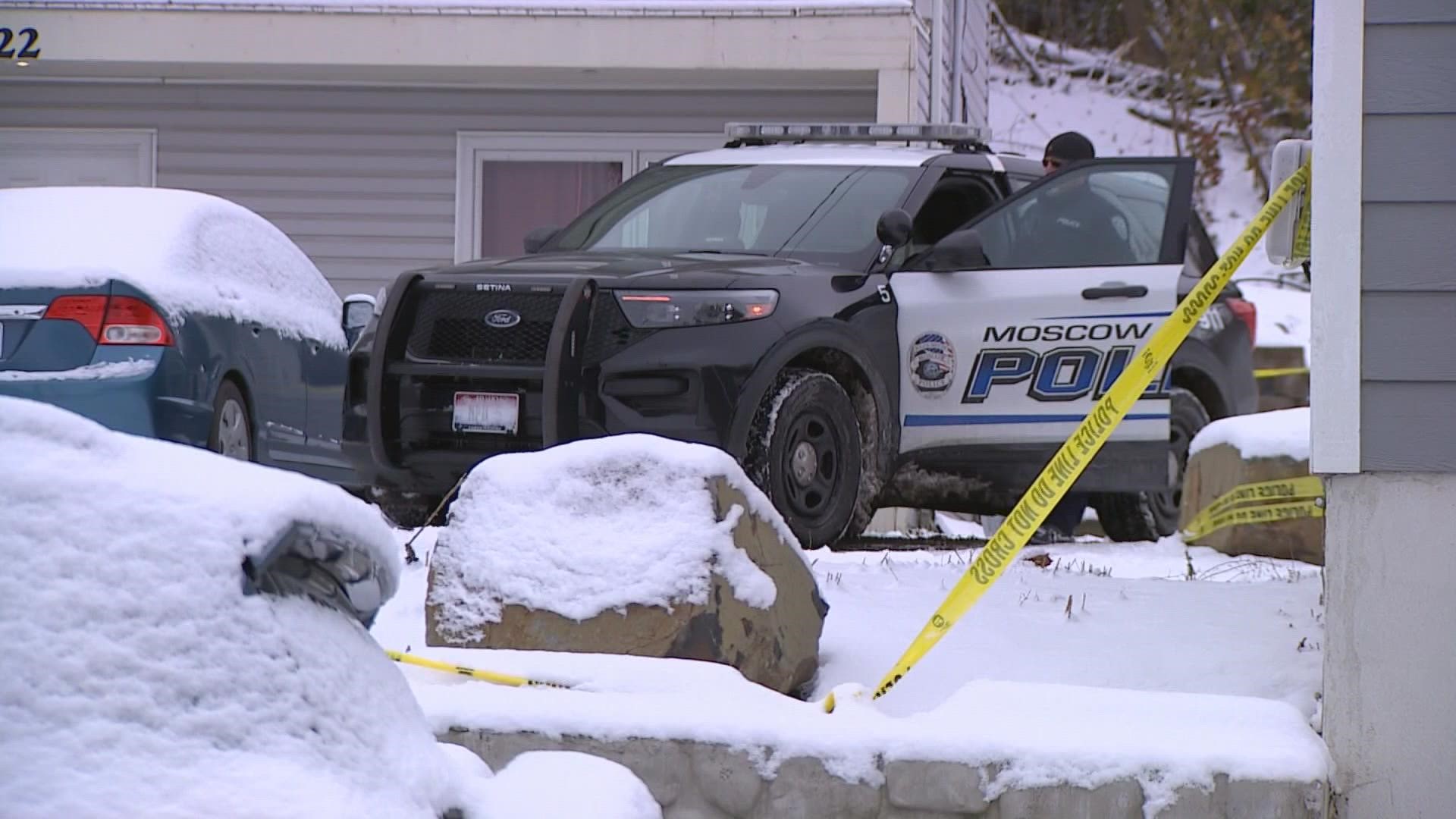MOSCOW, Idaho — Currently, suspect Bryan Kohberger is being held without bail in the Latah County Jail, accused in the murders of Ethan Chapin, Xana Kernodle, Madison Mogen and Kaylee Goncalves.
A status conference is set for Jan. 12, in which attorneys will likely discuss logistic matters such as scheduling. Here's what else is coming up in Kohberger's legal process.
Investigation remains ongoing
Due to an order in the case commonly referred to as a "gag order," investigators are not able to release details to the public except through court hearings or publicly filed documents, but University of Idaho School of Law Assistant Professor Samuel Newton says it is likely that investigations by law enforcement and by the defense are ongoing. It's also possible the publicly released affidavit will lead to the submission of more tips in the case.
"I know they're working hard," Newton said. "[It's possible they] may think they have enough information to sustain at least an arrest, but may not feel like they have enough to prove beyond a reasonable doubt. Releasing the name of a suspect to the public allows police to get more information, to solidify their case, their investigation, with public support."
Newton says there has been a lot of pressure for answers as the community grieves a visceral tragedy but says a methodical investigation and a fair justice process are essential.
"There's sympathy for them, there's grief, there's loss, there's a sense of community coming together and helping," Newton said. "We also want to make sure we have the right person so it's important to remember that he's presumed innocent until the state proves he's the one that did this."
Will the case change venues?
It is possible that Kohberger's attorney could request a change of venue in the case if they choose that strategy.
"The Supreme Court says a defendant has a right to a fair trial with an unbiased jury, so if jurors have particularly strong feelings here in Latah County, and it's a smaller community so [it's a smaller number of people], it might be difficult to find a panel of twelve jurors," Newton said.
But with national attention on the case, it's also possible that it would be difficult to find any jurisdiction without some knowledge of the events.
"They can know about the case as long as they're willing to set aside their opinions and be fair and listen to the evidence but I could see the defense trying to move it to somewhere like Boise where it's a bigger city, and with more people, there's a better chance of finding enough jurors," Newton said.
Forms of evidence
Surveillance images, cell phone data and DNA evidence played substantial roles in forming the case that led to Kohberger's arrest. Newton says cell phone and surveillance data are increasingly becoming more common as investigative tools. Still, he says there may be some attempts at stymying their use in court.
He notes that both eyewitness accounts and these forms of evidence have benefits and drawbacks when making a case. He says while an eyewitness account may seem cut-and-dry, trauma and what's happening at the moment can impact what witnesses remember and how they remember it -- and other forms of evidence may seem solid but are not infallible.
"What the police have done here is generate a host of circumstantial pieces of evidence, so a car here, a sheath here, surveillance footage at this time. Together that overall circle paints a picture of, we can put this person here when this happened at this time," Newton said. "In many ways, that stuff is a lot harder to refute because it is what it is. It's not subject to fallibility or human error. But take another step back. It is true that DNA tests are done by human beings, and they can make errors; human beings can also fail to collect pieces of evidence."
Healing outside the courtroom
Newton says while many are closely watching the judicial process, he hopes the focus will also remain on the people forever impacted by violence.
"I see lots of tensions at play about what are we as a people," Newton said. "When you have lost a loved one, how do you go back to work the next day? How do you go back for the next six months? How do you move forward with your life and where's the support for you?"
He hopes there will also be a focus on mental health supports and community frameworks to help people move forward.
"We shift all of our focus to legal process and legal procedure, which is important -- for the defendant -- but we forget about some of these other things too," Newton said.
Playlist: University of Idaho student murders

